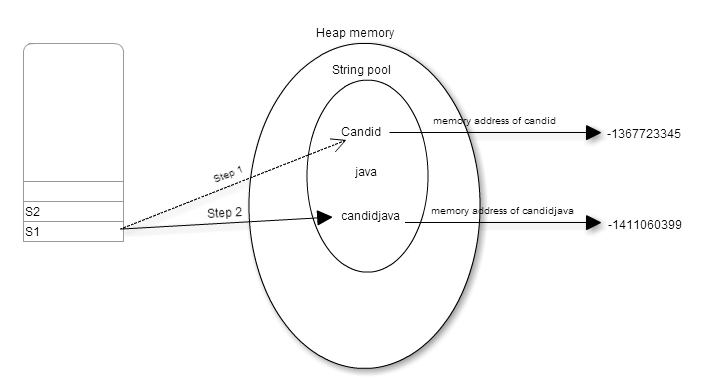What Is Unalterable Strings and Just How It Works
In the realm of shows, comprehending the principle of unalterable strings is critical for creating secure and durable applications. Unalterable strings refer to strings that can not be changed after they are produced, making certain information honesty and predictability within the code.
The Fundamentals of Unalterable Strings
Unalterable strings, as an essential concept in programs, are personality sequences that can not be changed as soon as they are created. This means that as soon as a string is appointed a value, that worth can not be changed. In languages like Python and Java, strings are immutable things, causing various implications in regards to memory management and information honesty.
One of the vital benefits of unalterable strings is that they supply a complacency in information manipulation. Because the web content of an immutable string can not be customized, it makes sure that the original information remains intact, lowering the risk of unintended changes throughout program execution (Why are strings immutable in Java?). This home additionally streamlines debugging procedures, as designers can trust that as soon as a string is specified, its worth will certainly not be inadvertently altered
Additionally, immutable strings facilitate efficient memory usage. When a new string is developed based upon an existing one, instead of modifying the initial string, the new worth is saved separately. This method boosts performance by lowering memory fragmentation and streamlining memory allowance processes. In general, understanding the essentials of immutable strings is important for mastering programming principles and enhancing code efficiency.
Advantages of Immutable Strings
Structure upon the protection and performance advantages of immutable strings, their advantages include boosting code integrity and simplifying concurrent programs tasks. By being immutable, strings can not be customized after production, which eliminates the danger of unexpected adjustments in the data they keep. This fundamental immutability guarantees that as soon as a string is produced, its value remains constant throughout the program's execution, reducing the possibilities of pests triggered by unanticipated modifications.
In addition, immutable strings add to code integrity by making it simpler to reason regarding the state of a program. Because strings can not be altered, developers can rely on that a string will certainly constantly hold the exact same worth, streamlining debugging and upkeep initiatives. This predictability results in extra secure and reputable codebases.

Execution in Programming Languages
Within numerous programming languages, the unification of unalterable strings is a fundamental element that impacts exactly how information is handled and adjusted within code structures. The application of immutable strings varies throughout different programming languages, with each language supplying its very own mechanisms to sustain this concept.

On the other hand, languages like C and C++ do not have integrated support for unalterable strings. Programmers in these languages should by hand carry out immutability by implementing regulations within their code to prevent straight alterations to string items.
Ideal Practices for Collaborating With Immutable Strings
When managing immutable strings in programming languages like Java and Python, adhering to finest techniques ensures secure and efficient data adjustment. Among the key best techniques is to utilize StringBuilder or StringBuffer instead of directly adjusting strings, particularly when try this out managing extensive concatenation operations. These courses give mutable choices for string control, helping to prevent unneeded memory allocations and boosting efficiency.
Furthermore, when working with delicate information such as passwords or API keys, it is essential to prevent keeping them as ordinary message in unalterable strings. Utilizing safe and secure storage space devices like char arrays or specialized libraries for dealing with sensitive info aids alleviate safety dangers associated with unalterable strings.
Real-world Applications and Instances
Exploring sensible applications of immutable strings in different industries discloses their considerable effect on data honesty and system dependability. In the healthcare have a peek at this website field, unalterable strings play an essential role in guaranteeing the security and confidentiality of individual information. By protecting against unauthorized alterations to delicate information such as medical documents and prescriptions, unalterable strings assist preserve compliance with rigorous personal privacy policies like HIPAA.
Financial institutions also take advantage of the unalterable nature of strings to boost the safety and security of consumer data and deal documents. Immutable strings aid stop fraud and unapproved alterations to economic info, supplying a robust protection versus cyber hazards and ensuring the depend on and self-confidence of customers.

Conclusion
Finally, immutable strings are dealt with and stable sequences of characters that provide benefits such as thread safety and enhanced efficiency in programming. They are applied in numerous programming languages to ensure useful site information integrity and safety. Best practices for collaborating with unalterable strings include preventing direct adjustments and utilizing techniques that return brand-new string objects. Real-world applications of immutable strings consist of information encryption, caching, and string manipulation jobs.
Immutable strings refer to strings that can not be changed after they are developed, making certain information stability and predictability within the code. When a brand-new string is created based on an existing one, rather than modifying the original string, the brand-new value is saved individually.In languages like Java and Python, strings are unalterable by default, meaning that once a string item is created, its value can not be changed - Why are strings immutable in Java?. Best methods for working with immutable strings consist of staying clear of direct modifications and using approaches that return brand-new string items. Real-world applications of unalterable strings consist of information file encryption, caching, and string control jobs